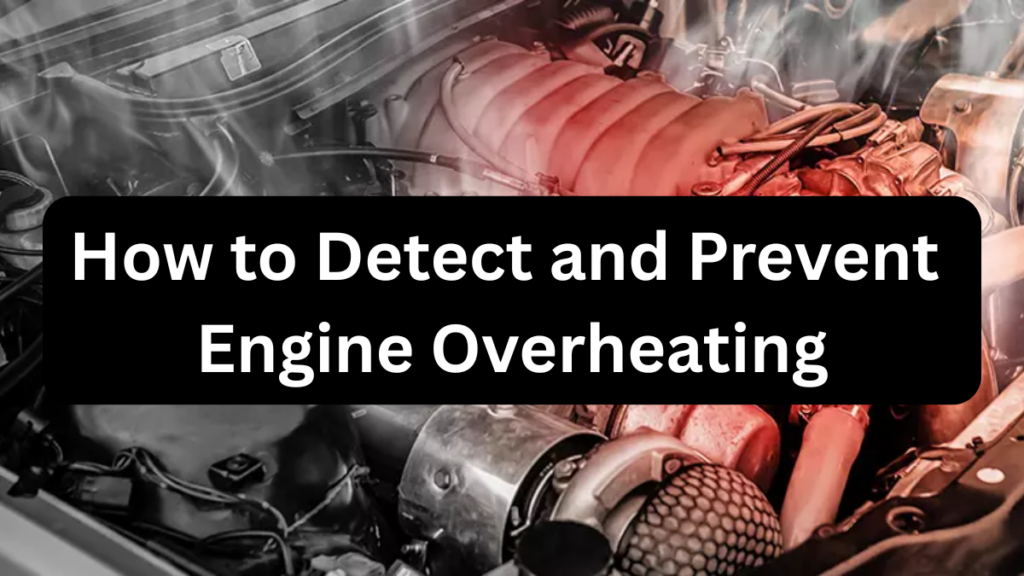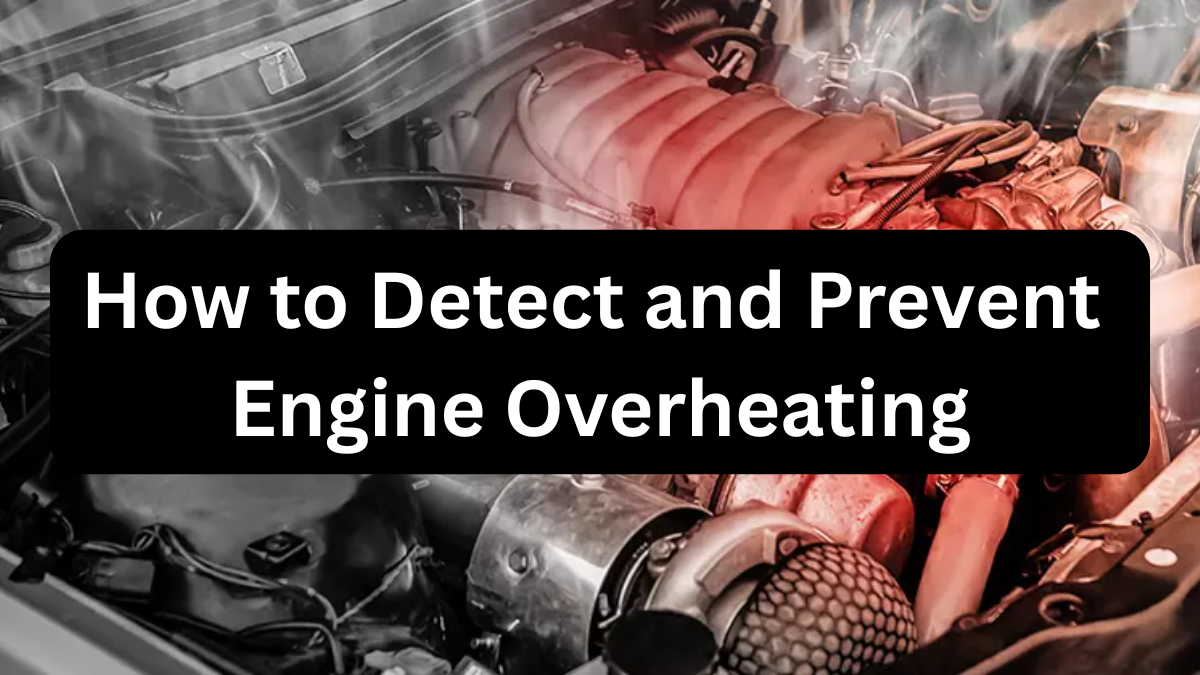Engine overheating is a common issue that can quickly turn a smooth ride into a stressful situation. Knowing how to detect engine overheating, recognizing car overheating causes, signs and solutions, and taking preventive steps can make all the difference in protecting your engine and wallet.

Table of Contents
Why Does Engine Overheating Happen?

Your car’s engine creates a lot of heat while running. The cooling system is designed to keep temperatures in check, but problems can cause it to fail.
Common Car Overheating Causes
-
Low coolant levels
-
Faulty thermostat
-
Radiator leaks or blockages
-
Water pump failure
-
Malfunctioning cooling fan
-
Cracked or blocked hoses
How to Detect Engine Overheating: Key Signs to Watch For
Catching the problem early can prevent long-term damage. Look for the following signs:
-
Temperature gauge rising into the red zone
-
Steam or vapor coming from under the hood
-
Dashboard warning light for high temperature
-
Unusual sweet or burnt smells
-
Sluggish engine performance or power loss
-
Visible coolant leaks beneath the car
What to Do If Your Car Starts Overheating
Acting quickly can prevent engine damage. Follow these steps if your engine begins to overheat:
Step |
Action |
Why It Matters |
|---|---|---|
1 |
Pull over and turn off the engine |
Stops the engine from creating more heat |
2 |
Wait 15–30 minutes before opening hood |
Protects you from burns or injury |
3 |
Check coolant level |
Replenish if it’s low |
4 |
Look for leaks or damaged parts |
May help pinpoint the root cause |
5 |
Call for professional help |
Prevents worsening the problem |
Preventing Engine Overheating: Practical Tips
Routine maintenance and proactive care can help you avoid engine trouble.
Helpful Prevention Tips
-
Check coolant levels monthly
-
Inspect the radiator and hoses regularly
-
Replace thermostats and water pumps as needed
-
Ensure the cooling fan is functional
-
Avoid heavy loads during extreme heat
-
Flush and refill the coolant system based on your car manual
Quick Guide to Car Overheating Causes, Signs and Solutions
Causes |
Warning Signs |
Solutions |
|---|---|---|
Low coolant |
High temp gauge, leaks |
Top off coolant, fix leaks |
Bad thermostat |
Temp gauge erratic or stuck high |
Replace thermostat |
Radiator blockage or leak |
Steam, rising temperature |
Repair or flush radiator |
Broken cooling fan |
Car overheats in traffic |
Replace fan motor or blade |
Faulty water pump |
Leaks, overheating |
Install a new water pump |
FAQs
Q1: How soon should I be worried if my engine starts to overheat?
The moment your temperature gauge climbs unusually high or you see steam, stop driving and turn off the engine. Immediate action can prevent major damage.
Q2: Can I keep driving if my car is overheating just a little?
No. Even mild overheating can quickly escalate and cause internal engine damage. Always stop and let the engine cool down.
Q3: How often should I check my coolant level?
You should check coolant at least once a month and before long road trips. This simple habit helps prevent many overheating problems.
Q4: What if there’s no coolant leak but my car still overheats?
In such cases, the issue might be with the thermostat, water pump, or radiator fan. A professional mechanic can help identify and resolve the problem.
Click here to learn more






